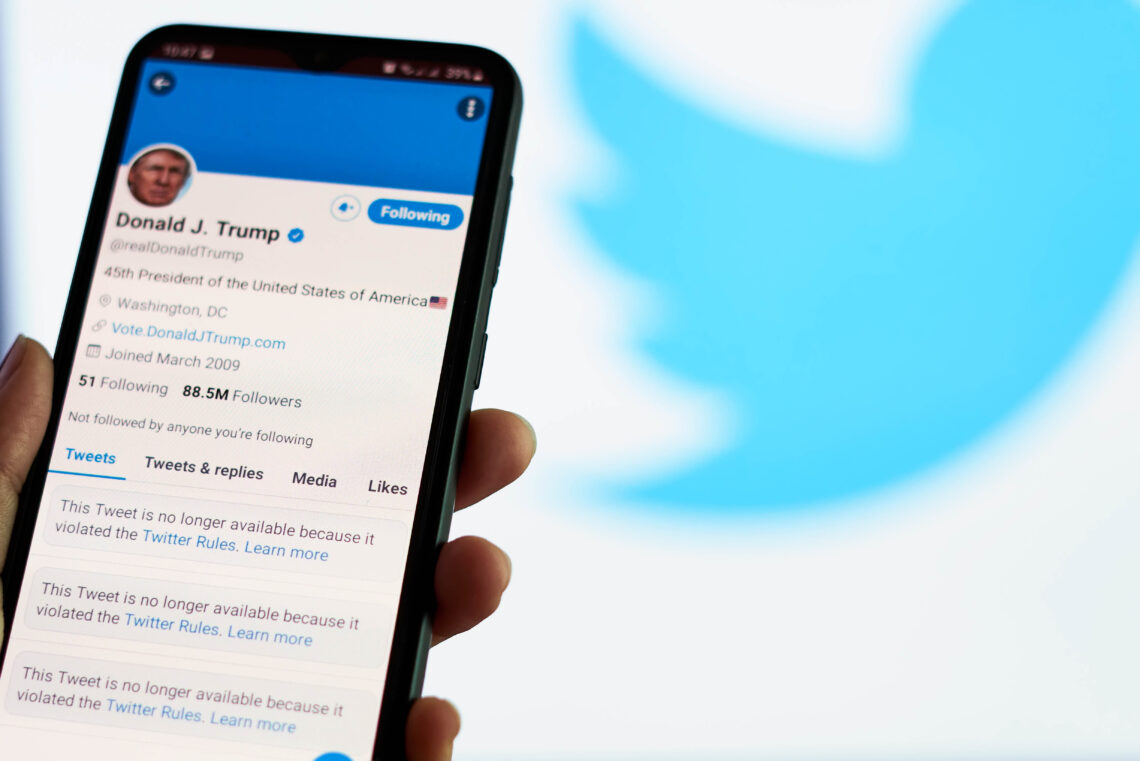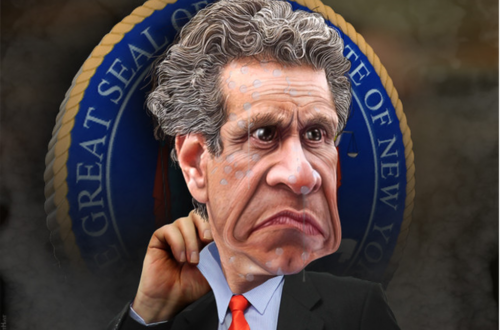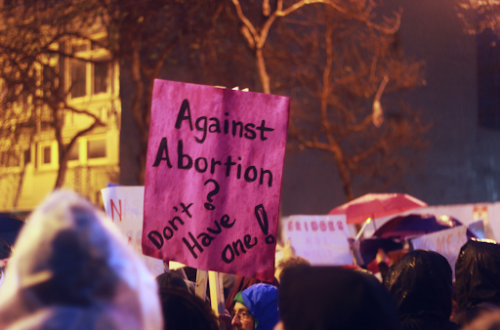Former President Donald J. Trump suffered a major defeat last October in his ongoing legal battle against social media giants Facebook, YouTube and Twitter.
The lawsuit — arguably an attempt to forcefully reseat himself upon his internet ivory tower — comes after Trump was banned following the Jan. 6 riot and his reprehensible endorsement of violence surrounding that event on these platforms.
Being locked out of mainstream social media has been a scary concept for the former president. The internet was arguably the crown jewel of his inflammatory campaign strategy. From the very first days of his bid for president, the crux of Trump’s rhetoric was espoused through Twitter to a raucous ovation.
Many users on the site fell into gleefully contentious mudslinging at his beck and call, affording the Trump campaign the ability to freely forge ever-more loyal supporters with each controversy. With the addition of Facebook — considering the comfortable safety of its echo chambers that purely existed to further exacerbate views — the Trump campaign benefited heavily from its heavy presence on social media. Thus, when the aforementioned suspension occurred, the Trump team would not go down without a bitter fight marred with scorched earth tactics.
It was understood that this was a matter of life or death for Trump’s lasting influence. Lawyers were hired and lawsuits were filed to sue on free speech grounds — the argument being that social media exists as a “public forum.” Perhaps most interesting, motions were filed to litigate in the U.S. District Court of the Southern District of Florida.
The million-dollar question is why; what does the Trump campaign stand to gain from moving their suits to Florida?
The most obvious reasoning would be that it is simply Trump’s current state of residence, making prosecution of this case simply easier. However, there is far too much money circulating this suit for geography to be an issue.
Beyond platitudes of California being in “Big Tech’s Pocket,” the more likely reasoning was a specific law passed by the Florida Legislature that specifically blocks social media companies from having the ability to sanction candidates or current members of public office.
The bill is essentially one big fruit basket to Trump, serving him a legal vindication of each minute grievance Trump is currently attempting to levy against Twitter. A federal injunction was served to prevent the law from passing into effect, but the message has rung loud and clear. In this fight, Florida appears to be on Trump’s side.
Unfortunately for the Trump litigation team (and fortunately for anybody who wishes to not have the First Amendment bent out of shape to serve specific political interests yet again), the motion to have the trial proceed in Florida was denied. The suit will take place in California, as will the cases against Facebook and YouTube.
This is due to Twitter and its peers’ terms of service agreements — signed by every user on the platforms. These agreements require that all litigation take place in San Francisco County, California.
There is no way around this measure.
If you use Twitter in any capacity and wish to sue them, you do it in California. The bid by Trump to have it filed in Florida only occurred as a means of struggling against the inevitable: a failure of this case.
Reality looms large over the Trump litigation. The most obvious proof of this factor was the result of a similar litigation surrounding the “public forum” argument; it also involved Trump.
A variety of journalists sued Trump on the grounds that he had violated their First Amendment rights by banning them from his Twitter account. Lower courts remarkably accepted this decision, but the Supreme Court stepped in to throw out the ruling. To drag that same tired argument in front of a court again does not appear to be a winning strategy.
Fundamentally, the “public forum” argument exists on shaky ground. Twitter, Facebook, YouTube and all other social media platforms are inherently not public forums. They exist within the servers owned by specific companies and are not accessible to all Americans by nature. These are not digital town halls as much as cyber country clubs — even if the only entry fee is a signature.
Like most businesses in the U.S. then, Twitter is entitled to the right to refuse service so long as it does so on grounds that fall outside of anti-discrimination laws. As a restaurant may ask an unruly customer to leave, Twitter is similarly entitled to suspend Trump when he utilizes the platform Twitter provides him as a service to incite violence.
In Florida’s attempt to fall in stride with the personal desires of Trump, the state arguably violates Twitter’s First Amendment rights to decide the usage of its platform within anti-discrimination laws.
Social media has a tremendous effect on our brains in ways we have barely begun to understand. To deprive political figures of potential accountability and ramifications for actions taken on these platforms, we only invite greater polarization and less responsibility from our public officials.
Check out other recent articles from Florida Political Review here.
Featured Image: The main page of Donald Trump’s Twitter account, suspended following January 6th, 2021. Unmodified photo by Marco Verch used under a Creative Commons license (https://rb.gy/ygr3fr).





